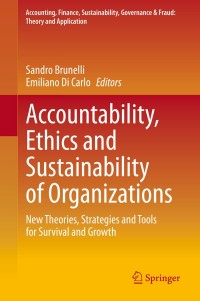Question
Like myself, perhaps you love a good cup of coffee. Suppose that you do, and you have the following information about the company that makes
Like myself, perhaps you love a good cup of coffee. Suppose that you do, and you have the following information about the company that makes the coffee you are considering. You are selecting a one-pound bag of coffee and you can choose to pay anywhere from $5 to $15 for the bag of coffee. In each of these cases, we mean ethical standards to refer to business practices and labor relations; an example of unethical business practice would be price-fixing, and an example of unethical labor relations would be discrimination in hiring practices.
Required:
Report the dollar figure asked for in each part of the four cases, and for each case, explain briefly your rationale for the price differences.
Case A: How much would you pay for the bag of coffee if (a) you know with certainty the company has high ethical standards, (b) you know with certainty the company has low ethical standards, and (c) you do not know anything about the companys ethical standards?
Case B: Similar to Case A, except that you only know what the company says about its ethical standards; however, you have for some time had high expectations that the company has high standards. How much would you pay for the bag of coffee if (a) you now find out with certainty the company has high ethical standards, or (b) you now find out with certainty the company has low ethical standards?
Case C: Same as Case B, except that you have for some time had low expectations that the company has high ethical standards. How much would you pay for the bag of coffee if (a) you now find out with certainty the company has high ethical standards, or (b) you now find out with certainty the company has low ethical standards?
Now suppose that with your cup of coffee you like to relax in a comfortable all-cotton shirt. You have the option to purchase a 100% organic cotton shirt, a 50% organic shirt, a 25% organic, or a totally nonorganic shirt. Organic production is more environmentally safe, using no toxic dyes and no harmful cleaning or processing materials.
Case D: What price would you pay for the cotton shirt, from a low of $15 to a high of $30? 1. For the 100% organic shirt 2. For the 50% organic shirt 3. For the 25% organic shirt 4. For the nonorganic shirt 5. How much would you pay if you had no idea how much organic content was in the shirt?
Step by Step Solution
There are 3 Steps involved in it
Step: 1

Get Instant Access to Expert-Tailored Solutions
See step-by-step solutions with expert insights and AI powered tools for academic success
Step: 2

Step: 3

Ace Your Homework with AI
Get the answers you need in no time with our AI-driven, step-by-step assistance
Get Started


